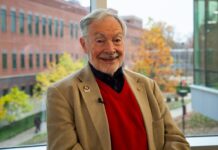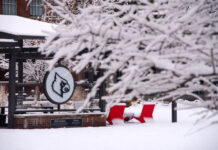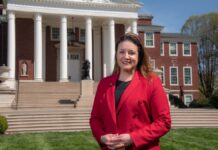
An experience on the other side of the globe gave one group of UofL students the opportunity to learn how to lead change.
This summer, eight Muhammad Ali scholars embarked on a transformative, two-week international learning and cultural experience in South Africa. Sherry Durham, director of the Muhammad Ali Scholars Program, said the scholars are asked to be active in building awareness of social justice issues, not just on a local level but national and even internationally.
“That was one purpose of the trip,” she said. “Muhammad Ali was very committed to service and empowering his community. We want to help build future change agents. Whatever the student is passionate about, we connect them with real people who are doing that work, and they come up with some type of solution.”
Durham, along with Marian Vasser, associate vice president for Inclusive Excellence and Belonging, and Muriel Harris, retired faculty member from the School of Public Health and Information Sciences, led the students abroad.
One stop on the journey included a tour of Robben Island, the infamous site of the prison where peace activist Nelson Mandela was held during apartheid. While talking with a tour guide and former prisoner, the group gained insight into South Africa’s arduous journey to democracy, and the resilience and spirit of the community.
“Through dialogue and conversation, we helped the students connect what they learned from the community and from the history in South Africa to their research projects,” Durham said. The director said she also was interested in connecting the dots from seemingly other disparate historical events around the world, like instances of genocide in various countries. “Even though these are very different events, it’s some of the same mistakes that we’ve made throughout history over and over again, regardless of race or ethnicity.”
Muhammad Ali Scholar and J.B. Speed School of Engineering student Kaamraan Iqbal said he appreciated the conversations with local residents.
“Everyone I spoke to who was affected by apartheid were extremely welcoming in sharing their stories and how they coped,” he said. “The people of South Africa should have a medal of honor for perseverance with all the stories I heard.”
Additionally, Durham said she welcomed the opportunity to see how other cultures experience their worlds.
“I wanted everyone, not just the students, but everybody, to recognize their privilege on so many levels. For example, in America you might be an ally, or a part of the LGBTQ community, but in Africa, that’s frowned upon in a lot of places,” said Durham. “I felt blessed to be able to see a broader perspective versus what we see here in our little bubble in the United States.”
Iqbal said the Ali Scholars program has opened his eyes to so many possibilities.
“For anyone who’s trying to find themselves, who’s wanting to be more than what they are right now, who wants to make a change but doesn’t know how, the Muhammad Ali Scholars program can help you reach that goal,” he said.
Created in 2004, the Muhammad Ali Scholars Program is designed to create a community of scholars who embody Muhammad Ali’s legacy, becoming transformative leaders who positively impact the community. Through a commitment to service and social justice, the scholars inspire change and become future change-makers. The two-year program of social justice leadership development, academic research, community engagement and service also requires undergraduate students to research a social justice issue where they wish to make an impact.






























